A guide for Introverts: Self-confidence for the Quiet Soul
In a world that often celebrates loud voices, and extroverted personalities, introverts may find themselves questioning their place. The quiet soul, though often reserved, possesses a unique strength that can be harnessed to build genuine self-confidence.
If you’re an introvert looking to embrace and cultivate your self-assurance, this guide is for you.
Table of Contents
Understanding Introversion and Confidence
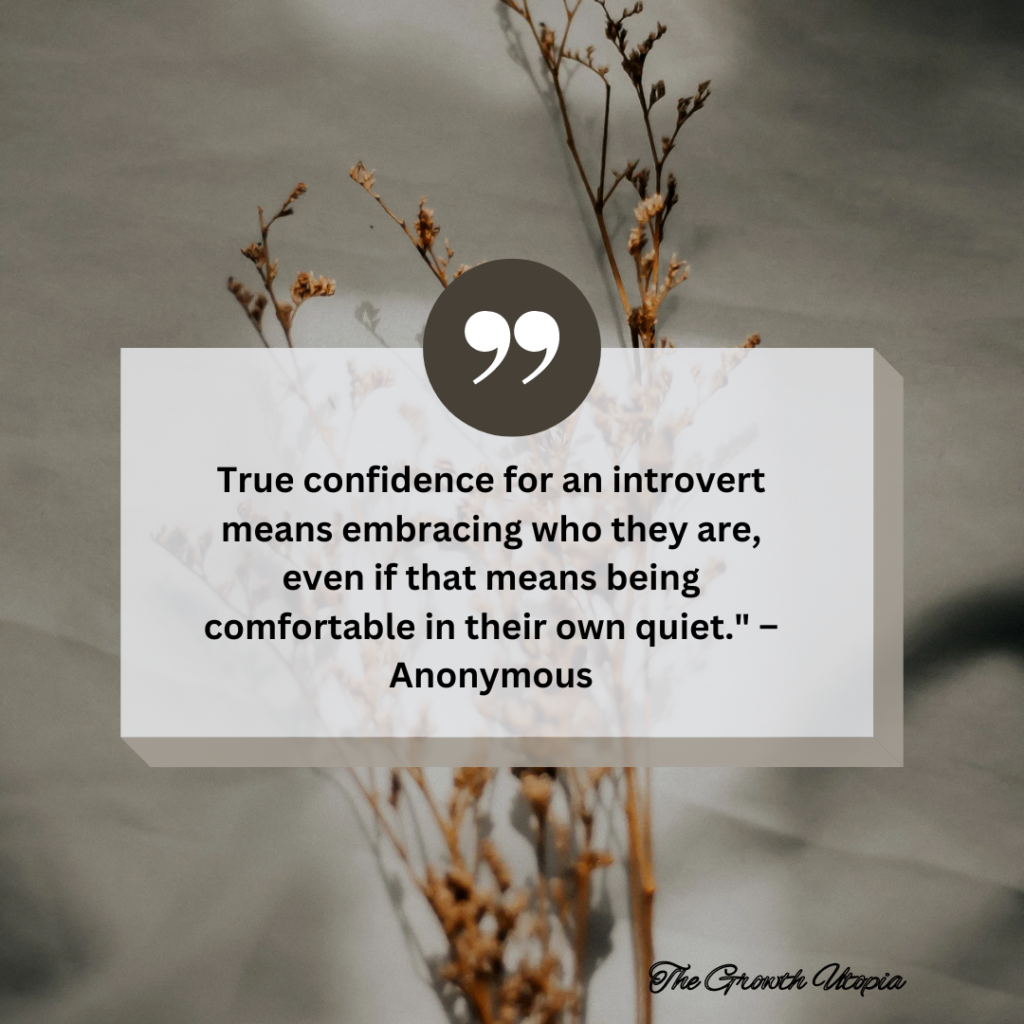
Introverts typically find energy in solitude and deep connections rather than large social gatherings. Confidence for introverts is about recognizing and valuing these intrinsic qualities rather than trying to fit into a mold that doesn’t suit you. Introversion and confidence are often misunderstood. Many people assume that introversion equates to shyness or a lack of confidence, but that’s far from the truth. Introverts may be quieter, more reflective, and prefer less stimulation, but that doesn’t mean they lack self-assurance or the ability to succeed.
What is Introversion?
Introversion is a personality trait where individuals prefer calm, minimally stimulating environments. While extroverts recharge by socializing and engaging with the external world, introverts gain energy from solitude and quiet reflection.
Key Characteristics of Introverts:
- Enjoy spending time alone or with a small group of close friends
- Prefer deep, meaningful conversations over small talk
- Tend to think before they speak, valuing reflection
- Feel drained after long periods of social interaction, needing time to recharge
Embrace Your Quite Strength
In a world that often celebrates loud voices and extroverted personalities, it’s easy to overlook the quiet strength that many people possess. However, being soft-spoken or introverted doesn’t mean you lack power or confidence—it simply means you express it in a different way. Learning to embrace your quiet strength can lead to greater self-assurance, success, and fulfillment in both your personal and professional life. we’ll explore what it means to have quiet strength, how to harness it, and why introverted confidence is just as valuable as extroverted energy
What is Quiet Strength?
Quiet strength is the ability to remain composed, thoughtful, and confident without needing to be loud or flashy. People with quiet strength don’t seek attention or feel the need to assert themselves constantly, but their presence is deeply felt and respected by those around them. They lead with calmness, empathy, and a sense of purpose, often inspiring others in subtle yet powerful ways.
The Misconception: Introversion vs. Confidence
A common misconception is that introverts or quiet people are less confident than their more extroverted counterparts. However, confidence doesn’t necessarily mean being the loudest person in the room. Confidence is about self-assurance, knowing your abilities, and feeling secure in your identity. Many introverts exude quiet confidence by being true to themselves and leading through their actions rather than words.
How to Embrace Your Quiet Strength
If you’re someone who identifies with quiet strength or introversion, here are some ways to embrace your natural abilities and make the most of your unique personality:
1. Acknowledge Your Strengths
Recognize that being quiet or introverted doesn’t make you less capable—it simply means you have a different way of engaging with the world. Reflect on your strengths, such as being a good listener, having the ability to think critically, or remaining calm under pressure. These qualities are highly valuable in both personal relationships and professional settings.
2. Stop Comparing Yourself to Extroverts
It’s easy to feel overshadowed by louder or more outgoing people, especially in environments that reward extroversion. However, remember that your quiet strength brings its own unique value to the table. Instead of trying to be someone you’re not, embrace your natural tendencies and find ways to let your strengths shine.
3. Build Quiet Confidence
Quiet confidence is about being secure in who you are, even if you’re not the most vocal person in the room. Focus on your skills, knowledge, and experiences to build self-assurance. Practice being assertive in ways that feel authentic to you, and remember that your confidence doesn’t need to be loud to be impactful.
4. Set Boundaries and Recharge
Introverts often need time alone to recharge their energy. Embrace this need by setting boundaries when necessary. Whether it’s taking time for yourself after a long day of social interaction or stepping away from overstimulating environments, prioritize self-care and recharge your mental and emotional reserves.
5. Lead in Your Own Way
If leadership opportunities arise, don’t feel pressured to adopt an extroverted style. Embrace your natural leadership abilities by leading through thoughtful action, empathy, and collaboration. Quiet leaders often inspire deep loyalty and respect because of their consistent, steady approach.

Develop Your Social Confidence
- Start Small: Social interactions can be daunting, but you don’t need to dive into large gatherings right away. Begin with smaller, more manageable interactions. Engage in one-on-one conversations or small group settings where you can feel more comfortable.
- Prepare for Social Situations: Planning ahead can help ease anxiety. Think about topics you enjoy discussing and prepare some conversation starters. Knowing you have a plan can make social interactions feel less intimidating.
- Practice Self-Compassion: It’s okay to feel overwhelmed or anxious in social situations. Practice self-compassion by reminding yourself that it’s perfectly fine to take breaks or step away if needed. Being kind to yourself is a key aspect of building confidence.
Leverage Your Listening Skills
- Use Your Listening Abilities: Introverts are often exceptional listeners. Use this skill to your advantage by engaging deeply in conversations and showing genuine interest in others. This not only strengthens your relationships but also reinforces your confidence in social settings.
- Ask Thoughtful Questions: In conversations, asking thoughtful questions can help shift focus away from yourself and allow you to connect with others on a deeper level. This can also provide you with more opportunities to contribute meaningfully to discussions.
Build Confidence in Your Professional Life
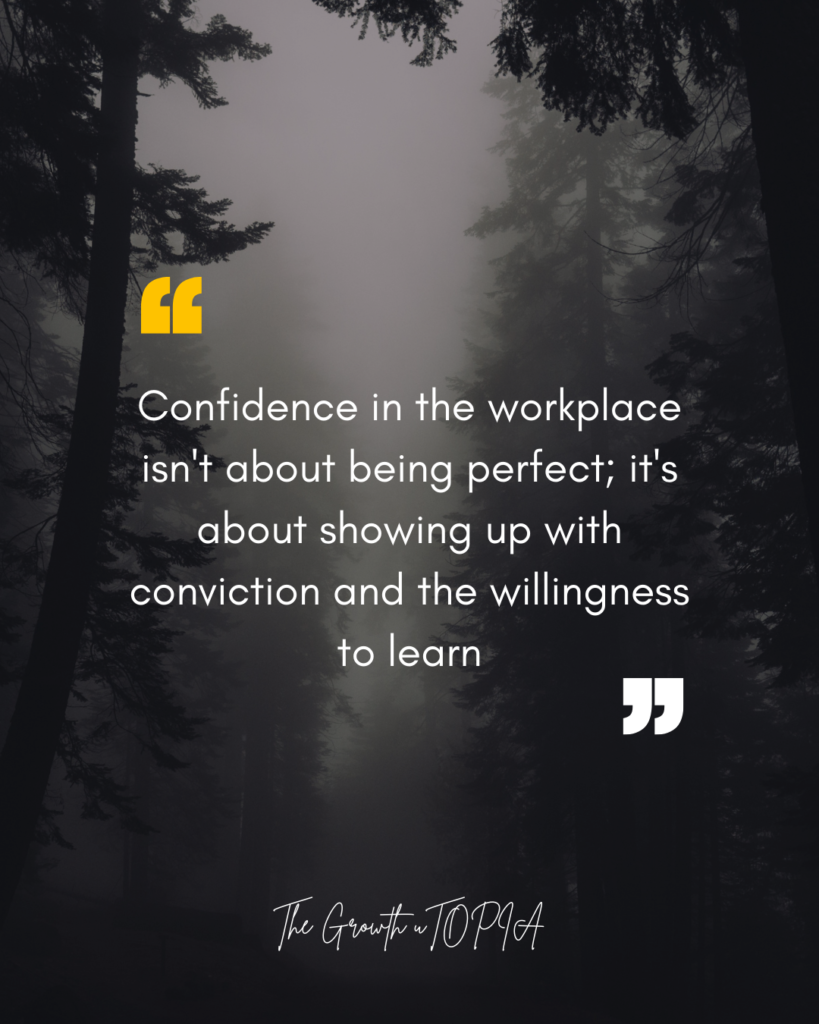
- Showcase Your Expertise: Introverts often excel in their fields due to their meticulous approach and attention to detail. Don’t shy away from showcasing your expertise. Share your knowledge through presentations, reports, or written content, and let your work speak for itself.
- Seek Leadership Roles That Suit You: Leadership doesn’t have to mean being the loudest in the room. Look for roles that allow you to lead in a way that aligns with your strengths, such as leading a small team, working on strategic projects, or mentoring others one-on-one.
Why Confidence Matters in Your Career
Confidence plays a crucial role in many aspects of your professional life, from how you’re perceived by others to how you approach challenges. Here are a few reasons why building confidence is key to professional success:
- Increases Visibility: Confident people are more likely to speak up in meetings, share their ideas, and take initiative. This helps them gain visibility and recognition in their organization.
- Enhances Leadership Potential: Confidence is a key trait of successful leaders. When you believe in your abilities, you’re more likely to inspire trust and respect from others.
- Boosts Problem-Solving Skills: Confident individuals tend to approach challenges with a positive mindset, seeing them as opportunities to grow. This helps them become more effective problem solvers.
- Improves Work Performance: When you feel confident in your abilities, you’re more likely to take on difficult tasks, make decisions, and perform well under pressure.
Conclusion
Building self-confidence as an introvert involves embracing your unique strengths and finding strategies that align with your personality. By acknowledging your qualities, celebrating small wins, and practicing self-compassion, you can develop a quiet, yet powerful, confidence. Remember, the journey to self-confidence is personal and ongoing—celebrate each step along the way and honor the quiet strength within you.

By embracing your unique strengths—such as deep thinking, active listening, and calm decision-making—you can develop a self-assurance that feels authentic to you. Instead of forcing yourself to adopt extroverted traits, focus on strategies that align with your natural tendencies, such as setting personal goals, preparing thoroughly, and creating space for quiet reflection. In doing so, you’ll not only build confidence but also thrive in a way that honors your true self.
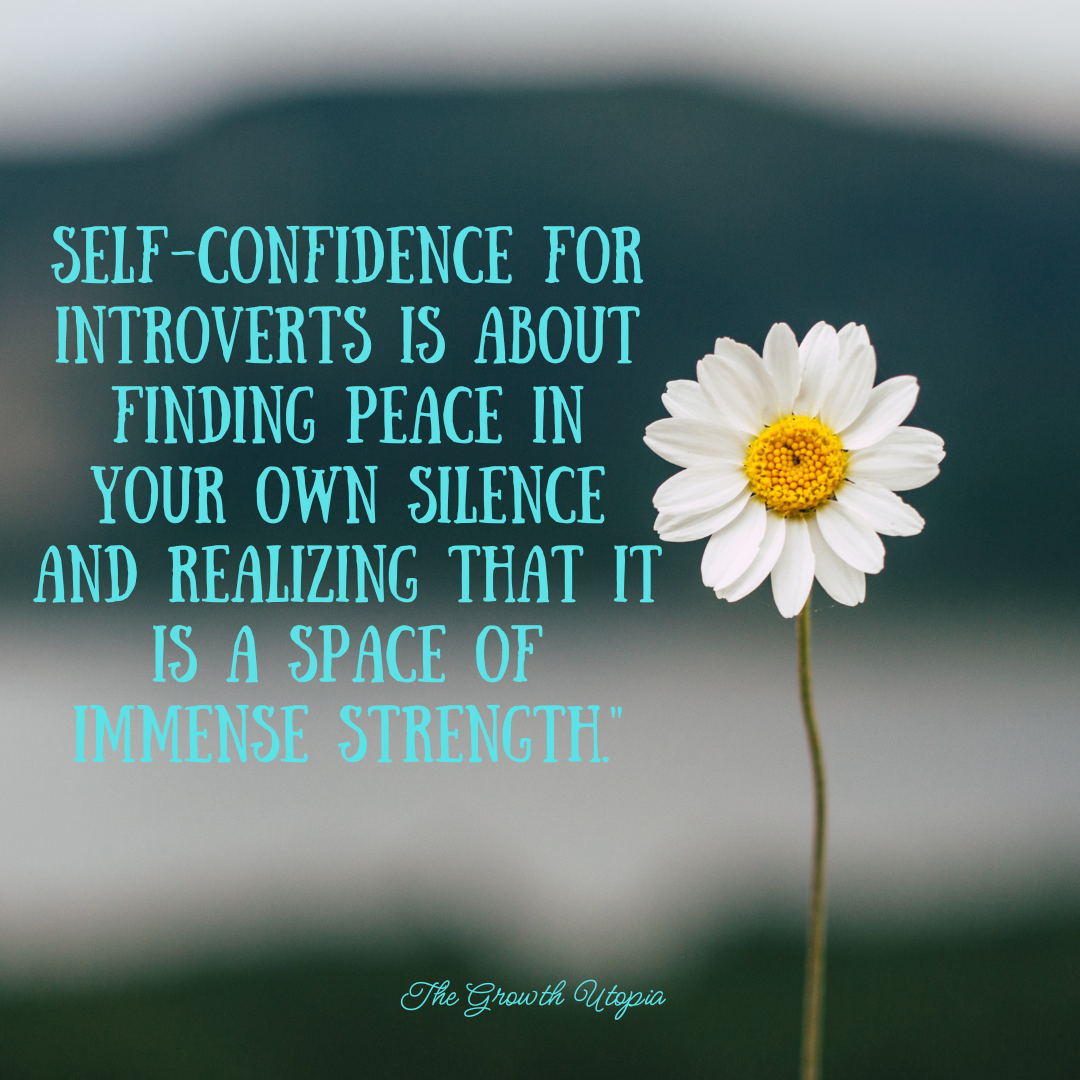

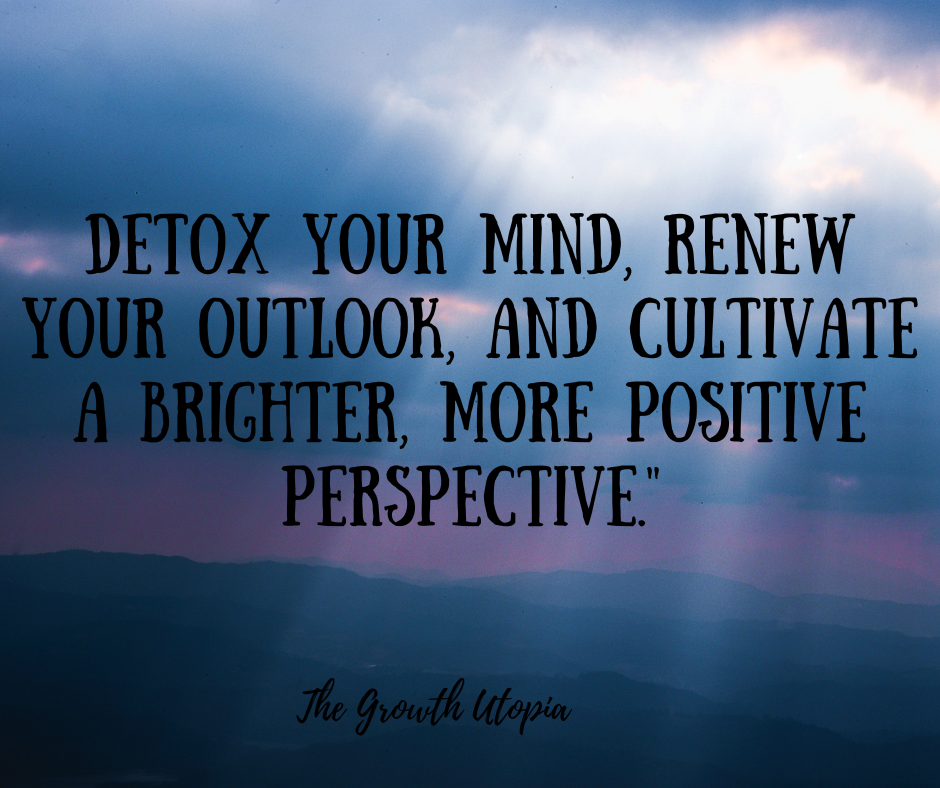





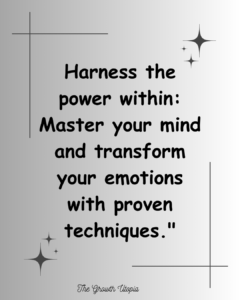
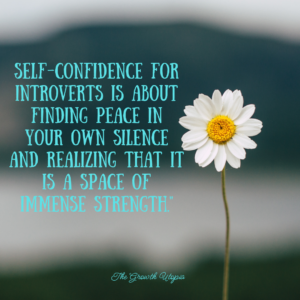


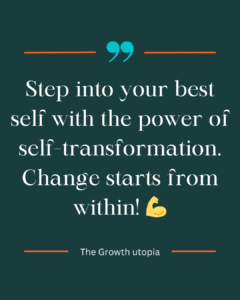

Post Comment